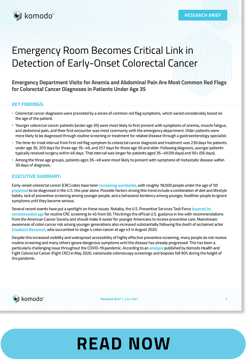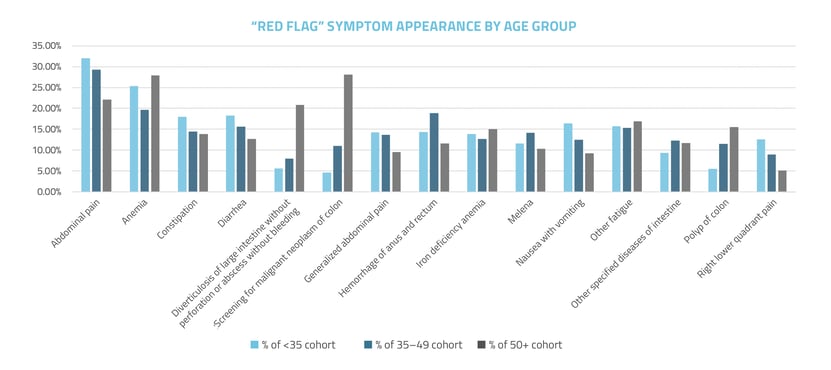The Fight Against Colorectal Cancer Starts Young

 This August will mark a year since the world lost Chadwick Boseman, the 43-year-old star of Black Panther, to complications from colon cancer. That reality is still hard to fathom, and it underscores the need for evolving the standard of prevention and care for colorectal cancer.
This August will mark a year since the world lost Chadwick Boseman, the 43-year-old star of Black Panther, to complications from colon cancer. That reality is still hard to fathom, and it underscores the need for evolving the standard of prevention and care for colorectal cancer.
Just this past month, the U.S. Preventive Services Task Force concluded that colorectal cancer screening should begin at 45, five years earlier than initially recommended. Why? Early-onset colorectal cancer (CRC) rates have been increasing worldwide, with roughly 18,000 people under the age of 50 projected to be diagnosed in the U.S. this year alone.
What’s more, despite this increased visibility and widespread accessibility of highly effective preventive screening, many people do not receive routine screening and many others ignore dangerous symptoms until the disease has already progressed.
Unfortunately, this just might just be the tip of the iceberg. According to an analysis published by Komodo Health and Fight Colorectal Cancer (Fight CRC) in May of 2020, nationwide colonoscopy screenings and biopsies fell 90% during the height of the COVID-19 pandemic. So while thousands of patients under 50 will have their cancer detected this year, it’s extremely likely that thousands more will not.
In order to dig deeper into patient behaviors and patterns of care associated with CRC, Komodo Health and Fight CRC evaluated the patient journeys of colorectal cancer patients in three distinct age groups: under age 35; 35–49; and 50+. The analysis identifies the most common red-flag symptoms associated with a subsequent CRC diagnosis, the types of healthcare providers most likely to see first red-flag symptoms, and the total time-to-treatment from presentation of initial symptom to eventual CRC diagnosis and treatment.
Following were some of the key findings:- Younger colorectal cancer patients (under age 35) were most likely to first present with symptoms of anemia, muscle fatigue, and abdominal pain, and their first encounter was most frequently with the emergency department. Older patients were more likely to be diagnosed through routine screening or treatment for related disease through a gastroenterology specialist.

- Among the three age groups, patients ages 35–49 were most likely to present with symptoms of metastatic disease within 30 days of diagnosis. Roughly 8% of patients under 35 were found to have sought care at least once for a secondary neoplasm indicative of metastatic disease within 30 days of their initial CRC diagnosis. The rate of concurrent secondary neoplasm at presentation was 13.7% within the 35–49 age group, and 9.63% in the 50 or older age group.
- The time-to-treat interval from first red flag symptom to colorectal cancer diagnosis and treatment was 230 days for patients under age 35, 203 days for those age 35–49, and 257 days for those age 50 and older. Following diagnosis, younger patients typically received surgery within 46 days. That interval was longer for patients aged 35–49 (59 days) and 50+ (56 days).
As younger patients begin to receive routine CRC screenings, understanding findings and informing frontline clinicians about these trends could help unlock an underlying gap in care that has been overlooked, and it could make all the difference. When CRC is found at an early stage, the five-year survival rate is roughly 90%. As such, preventive screening has helped drop the overall CRC death rate by 51% over the last 40 years. As the COVID-19 pandemic recedes, and routine health screenings resume, there needs to be a push to take the fight against CRC to the young. For many, it will be life-saving.
To read our full research brief, click here.




